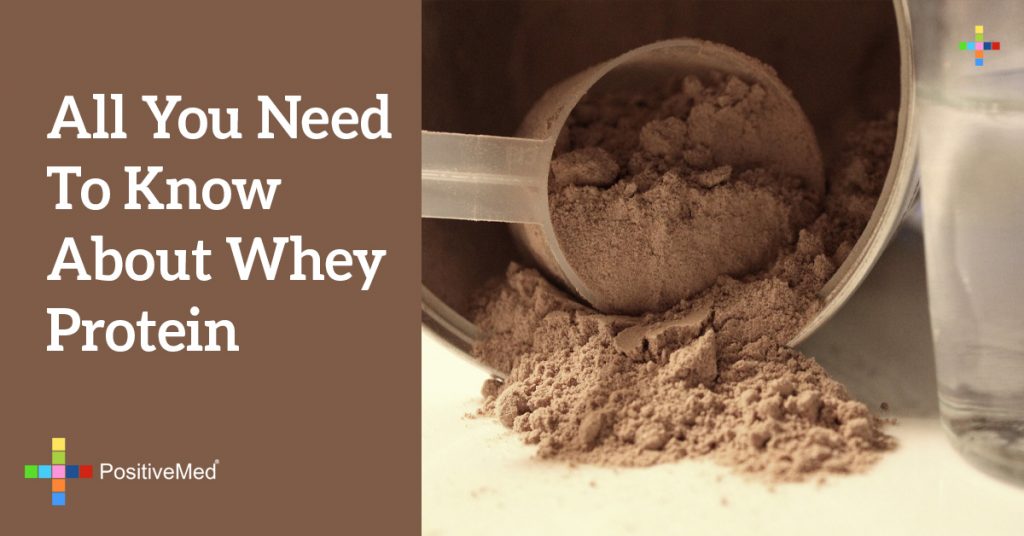
All You Need To Know About Whey Protein
[nextpage title=”…”]
People who are conscious about the benefits of various types of food often ask if whey protein can boost their immunity, body strength, and beauty. Maybe you just want to build muscles as you are too thin and do not want your neighbors to laugh at you anymore. Or perhaps you wish to have a splendid skin and are asking if whey protein can do the trick. If you are wondering whether whey protein should part of your diet, first you will need to know the facts about the supplement.

What is Whey Protein?
Whey protein is a combination of proteins separated from whey. Whey protein is a byproduct of cheese often sold as a dietary supplement. You are most likely to get whey protein as protein powder or shakes. Cheese manufacturers would in the past discard whey protein as a waste product, but whey protein is nowadays a popular diet around the world.
How to Produce Whey Protein
Whey protein is a byproduct of milk. Milk contains two proteins- whey and casein. Whey protein is separated from casein in milk or extracted as a byproduct of cheese making.
Whey is the liquid part of milk got during cheese production. Milk normally contains two proteins whey (20%) and casein (80%). Whey comes from the watery part of milk. The fatty parts of milk thicken when cheese is produced enabling the separation of whey as a byproduct.
When you open a container of yogurt and see the substance floating on the top, that is whey. Once whey is separated from milk or cheese, it is processed further to make whey protein powder.
Why Eat Whey Protein?
Whey protein is a “complete protein” that is easy and fast to digest. When people eat protein, the body uses the 20 amino acids that comprise the protein. The amino acids are essential when you want to build muscles, repair bones, body organs, improve general body health, and to repair tissues.
RELATED ARTICLE: How Many Grams Of Protein Every Woman Should Eat Per Day According To Her Lifestyle?
Whey Protein is unlike Other Proteins
Food technologists often talk about complete proteins and the rate at which different types of proteins are absorbed into the human body. When you eat protein with the 9 vital amino acids, such as whey protein, that food is a complete protein.
[/nextpage] [nextpage title=”…”]
Different proteins have varying amino acid levels. Foods such as meat, eggs, dairies, and quinoa vegetables are complete proteins. Starches and rice are not complete proteins because they do not have all the vital amino acids.
The rates at which proteins are absorbed into the body vary. Food technologists use the Biological Value (BV) to measure how the intake of protein. Whey protein has the highest BV score at 100. Whey protein, therefore, comprises all the essential amino acids and is easily digestible.
The Therapeutic Benefits of Whey Protein
There are many therapeutic benefits associated with whey protein, and researchers are constantly finding new health therapeutic properties of the supplement.
Whey protein supplements increase muscle mass and strength. The dietary supplement is popular among bodybuilders, athletes, fitness models, and people looking to improve their performance in the gym.“““““““`
Aiding weight loss
According to a study published in Nutrition & Metabolism, specialized whey protein high in leucine milk calcium and bioactive peptides helps to reduce body fat significantly and develop lean muscles.
Anti-cancer properties
The Journal Anticancer Research shows that whey protein concentrate (WPC) can aid in the modulation of cancer.
Lowering cholesterol
According to a study published in The British Journal of Nutrition, whey protein can decrease cholesterol in the human body.
Treatment of Asthma
Whey protein boosts the body’s immune system in children suffering from asthma. A study in the International Journal of Food Science and Nutrition indicates that when children with asthma had a better response to treatment after taking whey protein, for one month.
[/nextpage] [nextpage title=”…”]
Reducing the Risk of Cardiovascular Diseases and Lowering Blood Pressure
The International Dairy Journal published the results of a study that shows that beverages with whey protein significantly reduce blood pressure and hypertension. Whey protein can decrease the risk of heart diseases and stroke.
Treatment of HIV/AIDS
According to the journal Clinical and Investigative Medicine, whey protein is helpful in the management of HIV-AIDS.
Whey proteins help reduce Inflammation
High doses of whey protein significantly reduce C- reactive protein (CRP) that is responsible for inflammation.
Management of inflammatory bowel disease
Inflammatory bowel disease is characterized by chronic pain in the lining of the digestive system. Whey protein helps to reduce the advance of inflammatory bowel disease.
Treating type 2 diabetes
Whey protein moderates blood sugar levels if taken before or with high-carb meals. It is useful for type 2 diabetes patients.
The Daily Intake of Whey Protein
Whey protein is easily incorporated into the daily diet. People who take the supplement may add the powder to yogurts, smoothies or mix it with milk or water. The recommended daily dosage of 25-50 grams (1-2 spoonfuls) of whey protein powder daily is the commonly recommend dosage.
The Side Effects of Whey Protein
Whey protein is never good for people with liver kidney diseases. Besides, too much whey protein may cause nausea, diarrhea, cramping, digestive problems, and flatulence.
But generally speaking, putting a spoonful or two of whey protein powder in your beverage or juice daily will improve your health, immunity, and physique.
[/nextpage]





